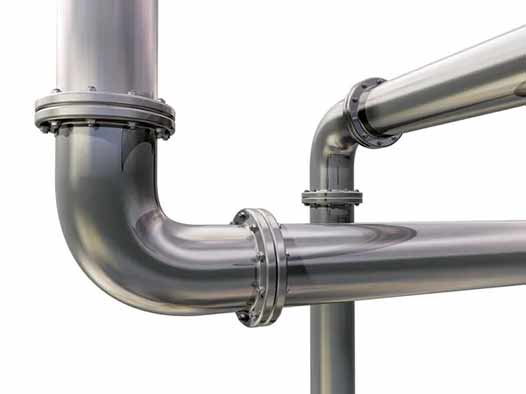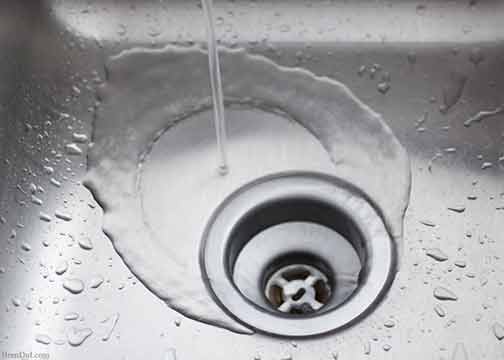
Having clean and safe water is crucial for the health and well-being of your family. Over time, older pipes in your home can corrode, leading to water quality issues and potential health risks. Repiping your home can be an effective solution to improve the water quality throughout your house. This article will guide you through the process of repiping your home to enhance your water quality and ensure a healthier living environment.
Understanding the Importance of Water Quality
Before diving into the repiping process, it is essential to understand the significance of water quality. Poor water quality can be harmful to your health, causing issues such as gastrointestinal problems, respiratory infections, and skin irritations. Additionally, contaminated water can damage household appliances and plumbing fixtures, leading to costly repairs or replacements.
By having your home professionally repiped, you can eliminate the risks associated with aging and corroded pipes, ensuring the delivery of clean, fresh water to every faucet.
Signs that Repiping is Needed
Recognizing when it’s time to repipe your home is crucial to prevent any further water quality deterioration. Look out for the following signs:
- Low water pressure: If you notice a significant drop in water pressure, it may indicate corroded pipes that restrict water flow.
- Frequent leaks: Aging pipes are more prone to leaks. If you find yourself dealing with frequent leaks, it may be time to consider repiping.
- Discolored water: Rusty or discolored water coming from your taps is a sign of corroded pipes that require replacement.
- Foul odor or strange taste: Unpleasant odors or tastes are indicators of impurities in your water supply.

When selecting a plumber, consider their experience, qualifications, and reputation. It’s also important to verify if they are licensed, insured, and offer warranties for their work.
Hiring a Professional Plumber
Repiping your home is a complex task that requires the expertise of a professional plumber. When selecting a plumber, consider their experience, qualifications, and reputation. It’s also important to verify if they are licensed, insured, and offer warranties for their work. A reliable plumber near you will assess your home’s plumbing system, determine the extent of repiping needed, and provide you with an accurate cost estimate.
Choosing the Right Pipes
Selecting the appropriate pipes for your repiping project is vital for ensuring better water quality and longevity. Two popular options are:
1. Copper Pipes: Copper pipes are known for their durability, resistance to corrosion, and ability to maintain water quality. While they may be more expensive upfront, they are considered a long-term investment due to their lifespan of 50+ years.
2. PEX Pipes: Cross-linked polyethylene (PEX) pipes are a flexible and cost-effective option. They are resistant to corrosion and offer better insulation, reducing the risks of temperature-related issues.
The Repiping Process
The repiping process involves careful planning and execution. Here are the key steps involved:
- Assessment: A professional plumber will inspect your existing plumbing system to determine the extent of repiping required. This helps in creating a detailed plan for the project.
- Preparation: This involves clearing the work area, shutting off the water supply, and ensuring the safety of your belongings.
- Demolition: Removal of the old pipes is conducted, taking care to minimize any damage to the surrounding infrastructure.
- Installation: The new pipes are carefully installed, following the pre-defined plan. This stage requires expertise to ensure proper connections and functionality.
- Finishing touches: Once the new pipes are in place, the plumber will perform pressure tests to identify any potential leaks. They will also reconnect fixtures, appliances, and ensure proper functioning.

Eliminating corroded pipes ensures cleaner and healthier water for drinking, cooking, and bathing.
Benefits of Repiping
Repiping your home offers numerous benefits, including:
- Improved water quality: Eliminating corroded pipes ensures cleaner and healthier water for drinking, cooking, and bathing.
- Enhanced water pressure: Repiping allows for optimal water flow, resulting in increased water pressure throughout your home.
- Prevention of costly repairs: Investing in repiping eliminates the need for frequent repairs caused by leaks or pipe bursts, saving you money in the long run.
- Increased property value: Upgrading your plumbing system by repiping can increase the value of your home.
Maintaining Water Quality After Repiping
While repiping greatly improves your water quality, it’s essential to follow these maintenance tips to ensure long-lasting results:
- Regular inspections: Schedule periodic inspections to detect any potential issues early.
- Water filter installation: Install a water filtration system to remove impurities and further enhance water quality.
- Prevent chemical damage: Avoid pouring harsh chemicals down your drains, as they can damage the pipes and affect water quality.
- Monitor water temperature: Extremely hot water can deteriorate pipes over time. Adjust your water heater temperature to reduce strain on the pipes.
To Sum It Up
Improving your water quality by repiping your home is a significant investment that guarantees better health, increased property value, and peace of mind. By understanding the signs indicating the need for repiping, hiring a residential plumber, selecting the right pipes, and following proper maintenance practices, you can achieve long-lasting and reliable water quality throughout your home.